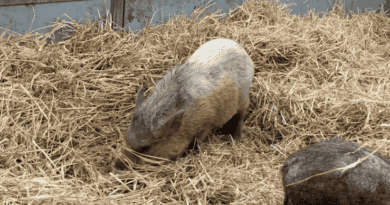Unveiling the Secrets: Exploring the Hidden Meanings in Nursery Rhymes
– A Deep Dive into the Most Searched Origins, True Meanings, and Hidden Gems
Nursery rhymes have long been cherished for their whimsical tunes and playful lyrics, enchanting generations of children. However, beneath the surface of these seemingly innocent verses lies a world of hidden meanings, intriguing origins, and untold tales. In this exploration, we delve into the most sought-after revelations surrounding nursery rhymes, uncovering the mysteries that have captured the curiosity of many.
1. Nursery Rhymes with Hidden Meanings
Despite their simplicity, some nursery rhymes carry subtle messages and hidden symbolism. Our journey begins with a look at the most searched nursery rhymes with concealed meanings. Join us as we decode the cryptic messages behind these timeless tunes.
2. Old Nursery Rhymes and Their Significance
The past holds a treasury of nursery rhymes with meanings that may have evolved over time. Let’s embark on a nostalgic trip to uncover the historical significance of old nursery rhymes and how their meanings have resonated through the ages.
3. Real Meanings of Nursery Rhymes: Unraveling the Truth
Dive deep into the core of nursery rhymes as we explore the real meanings behind the verses. Some may surprise you with their historical context or hidden moral lessons, revealing a layer of complexity often overlooked.
4. Origins of Nursery Rhymes: Tracing the Roots
Every rhyme has a beginning, and understanding the origins can provide valuable insights. We trace the roots of well-known nursery rhymes, unveiling the cultural, historical, and sometimes unexpected foundations that have shaped these beloved childhood melodies.
5. Nursery Rhymes True Meanings: Separating Fact from Fiction
Separating fact from fiction, we scrutinize the truth behind commonly held beliefs about nursery rhymes. Discover whether the tales of hidden messages and secret meanings are grounded in reality or mere folklore.
6. Hidden Meanings in Nursery Rhymes: A Closer Look
For those who relish a mystery, we delve into nursery rhymes with particularly elusive meanings. Uncover the secrets that have intrigued minds and sparked the imagination, making these rhymes stand out among the rest.
7. Nursery Rhymes Hidden Meaning: Unraveling the Enigma
Our journey concludes with an in-depth exploration of the concept of hidden meanings in nursery rhymes. We unravel the enigma surrounding these cherished childhood tunes, providing a comprehensive understanding of the hidden layers that often escape notice.
Join us on this captivating journey through the world of nursery rhymes, where we peel back the layers to reveal the fascinating stories, origins, and hidden meanings that have captivated minds for generations. Discover a new appreciation for these timeless melodies as we unravel the secrets woven into the fabric of childhood whimsy.
Nursery Rhymes Definition
Definition: A nursery rhyme refers to a traditional poem, tale or song for small children whose origin dates back to the eighteenth and the early nineteenth century.
It is possible that as a parent sings along to a nursery rhyme for his or her child, he or she is telling the same poems or stories that were told by another parent to their children a long time ago, probably in a different setting and form. This is irrespective of the fact that most nursery rhymes started to be written down in the eighteenth century when the publishing of children’s books started shifting from being polemic and educational and becoming more entertaining.
However, there is an indication that there were many nursery rhymes in existence long before the eighteenth century.
Some of these rhymes are believed to have come from varying sources including; traditional proverbs, riddles, ballads, drinking songs, and historical happenings. Hence most of these rhymes tend to reflect on historical events. For example, ‘Remember Remember’ nursery rhyme reflects on Guy Fawke’s failed attempt to blow up the English House of Parliament while ing a Ring of Rosies’ reflects on the Bubonic plague.
Beneficial to children
Nursery rhymes have a number of benefits attributable to them. Some of the reasons they are considered beneficial to children include;
They are helpful to the brain. Repetition of rhymes by children enhances their memory capabilities and can be useful in a wide range of other activities as well as improve their spatial reasoning which can enhance their performance in subjects such as mathematics and science.
They also teach a child how language works. For instance, a child’s first experience with literacy comes in the form of a nursery rhyme book. Hence, they enable children to learn how a book works which extends to the pictures and music associated with them.
Nursery rhymes are also a form of preservation of culture as it is passed on from one generation to another. They provide something in common for parent and their children as well as people who have not met each other. Children enjoy hearing and singing them, and at some point, some of them spark memories of one’s childhood.
When a child is reading a nursery rhyme, he or she is taking part in the passage of a longstanding tradition.
Building confidence
Singing nursery rhymes builds the confidence of the children allowing them to sing, dance, and perform together with others. This enables even the shy children to step up and enjoy themselves as they are not hard to grasp and they have an element of fun in them. They, therefore, bring forth a great group activity for children. Singing them also enables the children to realize the connection between rhythm, movement, and words.
Nursery rhymes bring about a feeling of joy in addition to fun for the children. Hence one should not let their deeper meaning come between their true values. As much as nursery rhymes contain some important life lessons as considered by parents, children just enjoy singing them without giving any reasonable attention to their deep meaning as they just enjoy their sound.
Introduction To Nursery Rhymes
There are numerous nursery rhymes that have been passed down from generation to generation and are all crucial for a child’s development. Most of the children love being told these rhymes because they love memorizing them and even reciting them.
Nursery rhymes are perceived to have an origin and hidden meaning for example the rhyme “Mary Had a Little Lamb” originated from the evidence that Mary Lawyer, as a girl, had kept a pet lamb which she took to school at her brother’s suggestion. Moreover, the rhyme “Baa Baa Black Sheep” is said to have originated from the slave trade where medieval wool taxes were lower than two-thirds.
Importance of nursery rhymes to children
1. Imaginative skills.
They expand a child’s imagination and take the child to an imaginary world for example in the rhyme “Little Miss Muffet” the child can imagine how frightened Muffet got when the spider sat beside her. It makes the child picture places and things as they are in the rhyme.
2. Improves a child’s vocabulary.
There are complex words in different rhymes that the child comes across while reciting the rhymes hence the child gets to learn the new words and their pronunciation making them good speakers.
3. Listening skills.
As you read the rhymes to the children, you are simply telling them a story and in order for it to make sense, the children have to pay attention thereby improving listening skills which will help the child in future.
4. Develop memory skills.
Since nursery rhymes are easy to repeat, repeated exposure to these rhymes makes the child memorize them hence improving the child’s memory which helps the child later in future.
5. Increases confidence
Increases a child’s confidence because when a child recites the nursery rhymes they are basically expressing themselves hence making them confident speakers and also less self-conscious.
6. Social skills
Social skills are also improved because when a group of children recite the rhymes together they are able to create a bond between themselves because they realize they all have something in common.
Vintage Nursery Rhymes and their hidden meanings
As soon as the child starts to mumble, the first thing that parents do is teach them nursery rhymes. Simple words when conjoined together sound nice and when sung as a rhyme reverberates in the ears forever. But will you believe that many of these nursery rhyme has an inherent meaning in themselves. Some meanings are funny while some are politically intriguing and based on some real incident or a person. Here are some nursery rhymes and their meanings that kids like and recite non-stop and stay merrily forever.
Mary had a little lamb
This rhyme was inspired by a true incident when a girl Mary Sawyer took her pet lamb to school. It so happened that her brother had asked her in a funny mood whether she would take her lovable lamb to school and she proved to him that she could do the same. On the very day, there was a nobleman who visited the school and was deeply touched by Mary’s act of taking the lamb she loved the most to school and was even more amazed to see the lamb dutifully following her. He then visited Mary the next day on horseback and handed her the paper that contained the rhyming verse. And this man was none other than John Roulstone.
Little Bo beep
This rhyme is famous for its storytelling where the little girl Bo Beep feels sad about her losing her sheep and she is finding a way to bring it back to her. The first recorded manuscript of this rhyme was found around 1805. The interesting fact is that there used to be a children’s hide-and-seek game known as Bo Beep around the 16th century and Shakesphere too has mentioned the same in his King Lear. This rhyme was later extended to many verses so that children enjoy singing and acting as Bo-Beep.
Baa Baa Black Sheep
This rhyme the first rhyme that was recorded and played back when the tape recorder was invented. Similarly, this rhyme was the first to be recorded on a computer. Children are taught to sing this rhyme in the same tone as that of Twinkle Twinkle Little Star. While this sounds simple, some politically diplomatic minds associate this rhyme with the wool tax that was once collected in the 12th century. This rhyme is the simplest rhyme for children to learn as well.
Well, it is really a new experience when one learns about what each nursery rhyme conveys. Every nursery rhyme and its meaning conveys one fact each of these rhymes was written to enlighten the future generation about their past. Some feel that these rhymes were written with simple intentions to entertain children, but some are interested in associating the political disturbances that were widely present in that era with these rhymes creating altogether a new inherent meaning. But leaving the meaning aside, one must admit that nursery rhymes have their own feel-good factor and energy. After all, everyone likes to clap their hand and tap their feet when their children shout baa black sheep in their nursery.
Things to do with nursery rhymes
Clap as you say the rhyme, this makes it a steady beat to the child.
As you say the rhymes, encourage the child to finish the line.
Try to say some of the words wrongly and the child will join in and correct you.
Draw or picture your favourite characters or scenes in the rhyme.
Once your child is old enough for example at the age of 2, introduce nursery rhymes to them.
Nursery Rhymes Origins
There is a lot of data to suggest that this is not the situation; that nursery rhyme origins are a critique of their times, a parody, a brief embodiment of history, call them what you might; many of them have exceptionally intriguing histories.
It is suggested that rhymes are a sort of oral tradition that originated during a period when not very many people could read or compose. Additionally, they originated during a period when free discourse was positively not an extravagance delighted in by the masses. So these little tunes were something that gave people a small amount of flexibility to talk their psyches, to talk dissentingly of an event; by building apparently silly poems.
A decent accumulation of nursery rhymes and their history or foundation will shed some light on the puzzle of the Goosey, goosey gander; which, it is suggested may allude to the closet Catholics of the sixteenth century when the Catholic ministers declined to give into the Protestants and their convictions (therefore the taking by left legs and tossing downstairs).
Nursery rhymes are critical for building vocabulary and learning to peruse. They are additionally precious for building memory as it has been found that rhyming especially makes a difference. Learning things to a beat or rhythm, for example, “30 days have September, April, June and November” sticks in the brain superior to anything learning through repetition, and this is the reason rhyming is utilized as a memory help. What number of people recall nursery rhymes from when they were more youthful, for example, Humpty Dumpty sat on a…
Nursery rhymes additionally acquaint children with verse and the different parts of verse, for example, meter and syllables. Nursery rhymes can likewise make learning fun; you can say them, sing them, act them out, applaud them and play around with them.
The origin of nursery rhymes is magnificent as it mirrors certain known occasions or genuine encounters from history. Each rhyme has its own particular origin and significance; even the impact on a kid’s advancement is interesting in its own specific manner. In like manner, there are many advantages of nursery rhymes in a youngster’s life. In some way or another, it has an effect on the physical, social, moral, passionate, and otherworldly advancement of a kid.
Here are some of the most significant advantages of nursery rhyme origins:
- Teaching rhymes helps children learn to communicate legitimately with the right articulation and discourse
- These summon children to express their emotions in a superior manner through different signals and outward appearances
- These help children love music and add to their faculties to acknowledge different forms of music
- Rhythm is a vital part of nursery rhymes that helps an extraordinary arrangement in the improvement of memory and auditory abilities
- Soft words and relieving tunes enamour toddler’s consideration that aid extend their creative abilities
- This assistance to effectively enrol each word and musicality in the tyke’s unadulterated mind
- Listening is an imperative aptitude that makes them more intelligent and seeing over the long haul
- Through the poems and verses children can paint nonexistent pictures that assist in initiating mindfulness
- Children have a superior comprehension of silliness through these rhymes
- Different rhymes have different ideas that offer different chances to create vocabulary taking into account the ideas
- Also helps an awesome arrangement in building up children’s motor abilities and co-appointment
- These verses can be beautifully transformed into expertise creating amusements for better learning
- These rhymes are a fundamental piece of social legacy and consequently are utilized to instil values and traditional convictions inside children

Lullabies For Babies
Lullabies are soothing songs or chants mainly sung to make infants sleep. Each community has lullabies composed in their own language which serve different purposes.
There are communities that sing lullabies to their young ones so as to pass down the tradition. Others do it as a way of teaching their children how to speak and listen. Lullabies mostly have simple lyrics which carry a very emotional and deep meaning. Most of them speak of love, either mother-to-child or sibling love. Most of these melodies are equipped with consonant intervals so that the song happens to be sweet, pleasant and acceptable to the children keeping them interested.
Lullabies may be believed to be just songs but they serve a very great purpose. Many people ask why lullabies are slow and some refer to them as boring. Well, these songs have slow tempos and are usually repetitive so as to acquire a rocking motion. This feeling is similar to what the baby felt as they were in their mother’s womb or when they were being rocked in a cradle. Therefore, the slow and rhythmic nature of a lullaby makes the baby feel comfortable as they experience the natural feeling of their existence, that is being in their mother’s womb. The slow tempo also allows the baby to process the words of the song. Sometimes as an adult, it is difficult to understand things once so many people are speaking to you at once. It gets even harder when the languages are foreign. It is the same case with children. Lullabies should not be accompanied because this confuses the baby. The musical instruments may sound foreign in the child’s ear not to mention that you are also singing. This may irritate the child making him/her cry.
Baby lullabies are timeless. They are not like modern music where songs are outdated. You will realise that those songs that your mother sang for you when you were young are the same ones that your infant enjoys.
Nowadays you don’t necessarily have to sing to your child personally each time they cry. Technology has made things simpler as you can record yourself singing hence the sound of your voice soothes your child as they tend to think that you are around. This may sound like deceiving your baby but it helps a lot especially when you are at work. This is because once you sing to baby constantly, they tend to prefer your voice as the mother over other females. This creates an emotional bond between the mother and child. There are also phone apps made specifically to sing lullabies for your child. There is one called the Best Baby Songs app which is an Android app but the web version also works great on iPhones and iPads.
Medical research has shown that lullabies act as music therapy and it helps your child feed and sleep better. It also slows the heart rate of premature infants. Premature babies in the Intensive Care Unit who have lullabies sung to them through headphones tend to leave the hospital sooner. Lullabies also help in oxygen saturation hence preventing conditions like apnea. Singing for your child while you are nursing him increases the rate of feeding hence keeping your baby healthy.
This article is written by our friends over at godnatfarmand.dk



